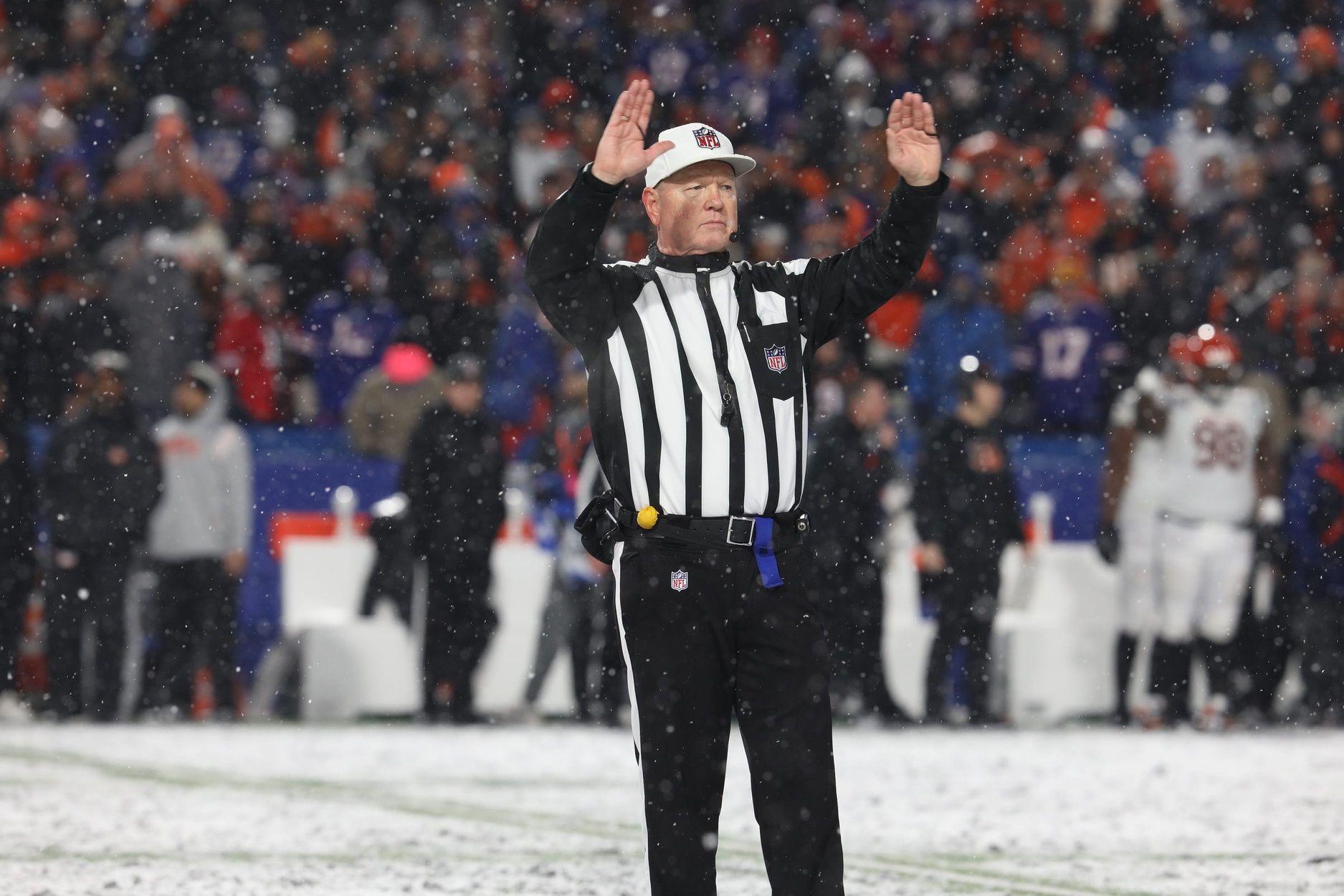An illegal formation can be caused by either the offense or defense, and it results in a 5-yard penalty. Teams that really focus on their fundamentals and X’s and O’s rarely see this flag called on them.
Illegal Formation in the NFL, Explained
On offense, a team must have seven or more players on the line of scrimmage and stay on the line until the ball is snapped. Additionally, if a team doesn’t have its eligible receivers lined up to the leftmost and rightmost sides of the line of scrimmage, that will trigger an illegal formation penalty.
Simply put, eligible receivers have always been the furthest players to line up on each side of the line of scrimmage. It sounds simple, but it has caused numerous discrepancies in recent years.
RELATED: Explaining NFL’s New Kickoff Rule
The Giants vs. Commanders game in 2022 saw a Washington touchdown negated in the final moments due to an illegal formation penalty. The flag was called because the Washington receiver was not on the line of scrimmage.
However, at the same time, you can clearly see Terry McLaurin verifying with the side official that he’s onsides.
I just wanna know what was said in this interaction with Terry McLaurin and the official pic.twitter.com/ajvsjuBuSM
— Jordan Dajani (@JordanDajani) December 19, 2022
That call in 2022 begs the question of whether the refs are under any obligation to advise players regarding how they’re lined up. Obviously, the thorough discussion between the ref and McLaurin caused a misunderstanding, and the flag was still thrown. Ultimately, the deficit was too large for Washington to overcome during that game.
In terms of defenses, there can be no more than six players on each side of the center. Having seven or more players on one side of the line will trigger this call. The NFL clarifies that for us in its video rulebook.
Overall, the rule aims to limit the creativity of pass catchers. Playing devil’s advocate, however, the defense does have a right to know who can/can’t catch a pass.

